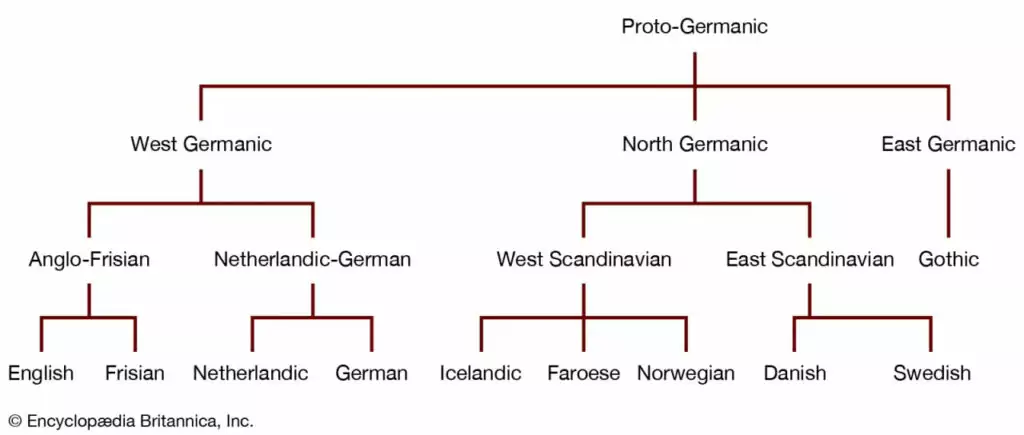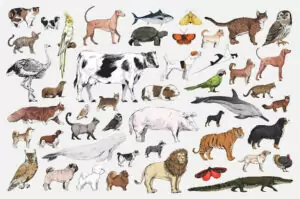Exploring the tapestry of human language, we often encounter fascinating branches of linguistic lineage. Among these, the Germanic languages present a rich and varied palette of sounds and structures, echoing an ancient heritage that still vibrates through millions of voices today. This article delves into the world of these languages, revealing their history, connections, and the common roots that bind them together.

✅ AI Essay Writer ✅ AI Detector ✅ Plagchecker ✅ Paraphraser
✅ Summarizer ✅ Citation Generator
The Germanic languages are a group with a long and intricate history, tracing back to a common ancestor known as Proto-Germanic. This ancient tongue, believed to have been spoken from around 500 BCE until the 5th century CE, gave rise to a family of languages that now includes English, German, Dutch, and the Scandinavian tongues, among others. With millions of native speakers worldwide, understanding the Germanic languages offers insights into a significant portion of the world’s linguistic heritage. This article will explore what the Germanic languages are, how many people speak them, their similarities, and address a common misconception regarding their evolution.
What Are Germanic Languages and How Many People Speak Them?
The Germanic languages, stemming from Proto-Germanic, split into three main branches: Northern, Western, and Eastern Germanic languages, although the latter group has since become extinct. Today, there are at least 47 living Germanic languages.

The Northern Germanic branch, often referred to as Scandinavian or Nordic, includes languages such as Swedish, Norwegian, Danish, Icelandic, and Faroese. The Western branch boasts German, English, Dutch, and others like Yiddish and Afrikaans. Collectively, these languages are spoken natively by approximately 515 million people. English, with about 360 million native speakers, and German, with 76 million, are the most widely spoken. When considering second-language speakers, the number soars to around 2 billion, predominantly due to the global spread of English.
Germanic Languages Similarities
The similarities among Germanic languages are not just in their ancestry but also in their current forms. Words that share a common origin, known as cognates, are prevalent across these languages. For instance, the German word “Wasser” translates to “water” in English and “water” in Dutch, illustrating a clear familial link.
- English/Dutch/Afrikaans/German: two/twee/twee/zwei
- English/Frisian/Dutch/Afrikaans/German: summer/simmer/zomer/somer/Sommer
| German | Dutch | English |
| kreativ | creatief | creative |
| grün | groen | green |
| besser | beter | better |
However, resemblance in writing does not guarantee mutual intelligibility. Sound shifts and grammatical changes over centuries have diversified the languages. For instance, English has absorbed numerous words from Old Norse and French, diverging significantly from its Germanic siblings.
Did All Germanic Languages Evolve From German?
A prevailing myth is that all Germanic languages evolved from German dialects, but linguistically, they are siblings rather than descendants of German. They all emerged from Proto-Germanic, which is why there are striking resemblances. However, German is not the parent but rather a sibling, sharing a common progenitor with English, Dutch, and the rest.
German and Dutch often appear similar to observers, with minor spelling variations leading to a sense of familiarity. Yet, it’s essential to understand that each language has evolved independently, influenced by unique historical, cultural, and social dynamics.
The Germanic languages form a diverse and widespread family with deep historical roots and a broad global presence. Their similarities provide a window into their shared past, while the differences reflect the unique paths each language has taken. Understanding this linguistic group challenges common misconceptions and enriches our appreciation of the complex tapestry of human language.
Follow us on Reddit for more insights and updates.





Comments (0)
Welcome to A*Help comments!
We’re all about debate and discussion at A*Help.
We value the diverse opinions of users, so you may find points of view that you don’t agree with. And that’s cool. However, there are certain things we’re not OK with: attempts to manipulate our data in any way, for example, or the posting of discriminative, offensive, hateful, or disparaging material.